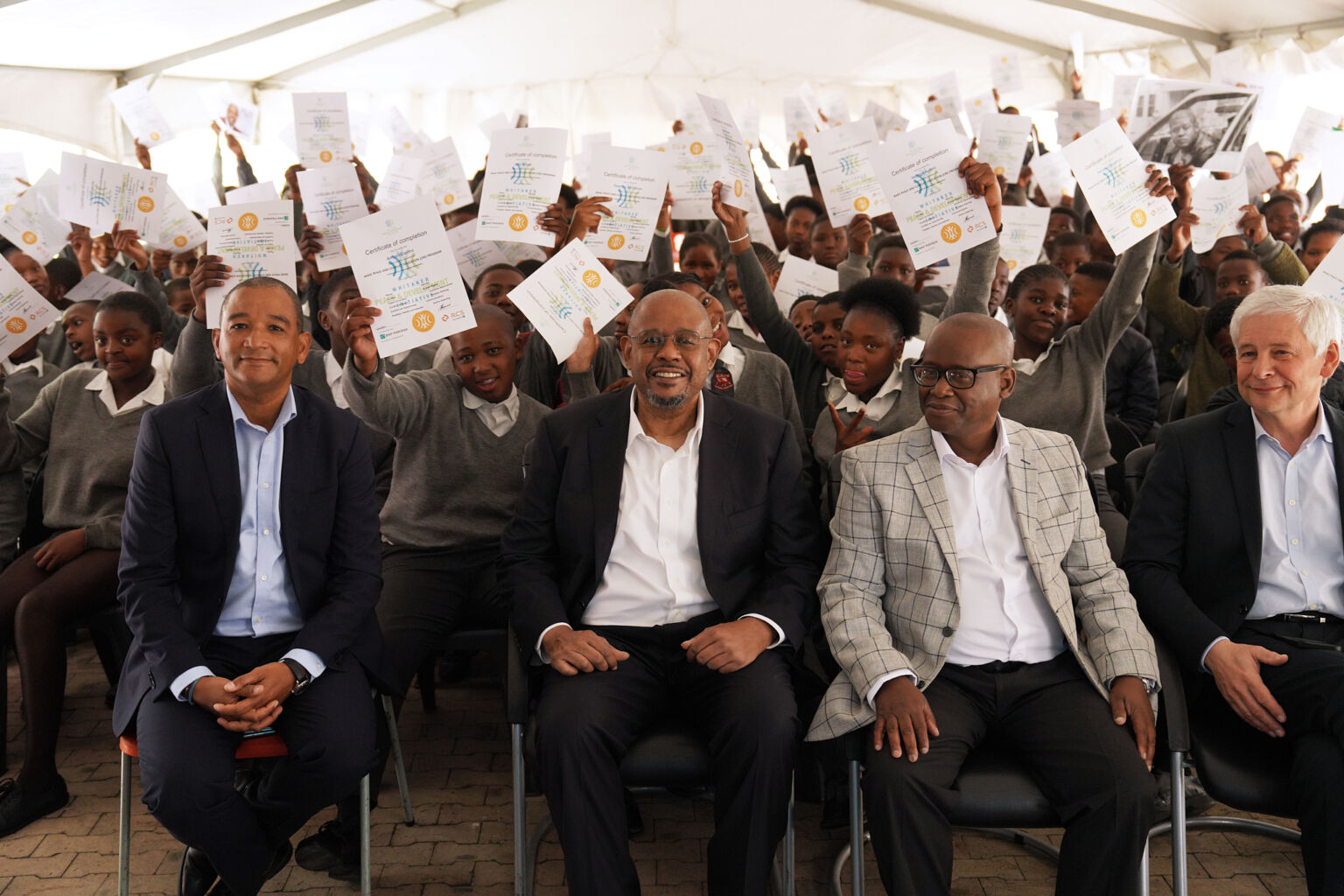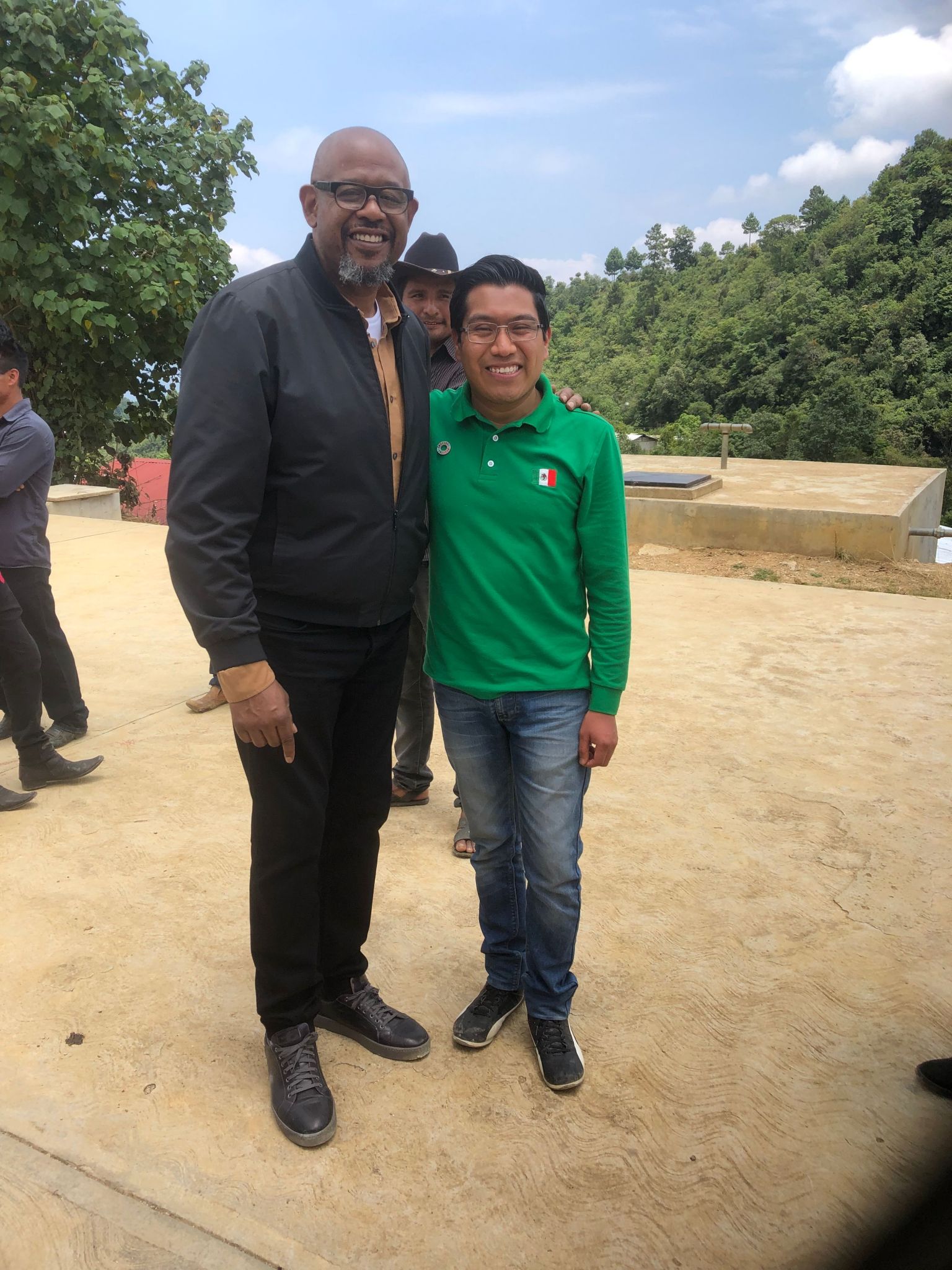
A Blog Post by Forest Whitaker on International Youth Day 2025
Thirteen years ago, I founded the Whitaker Peace & Development Initiative after witnessing the profound resilience of young people in Northern Uganda, many of them former child soldiers. These were young women and men whose childhoods had been stolen by violence, who had been forced to fight, kill, overcome, and survive unthinkable trauma.
They had every reason to give up on the world. And yet, they didn’t.
What I saw in them wasn’t only pain; it was purpose. They were not looking for pity; they were seeking tools, trust, and a chance to build something better. Not only for themselves, but also for their communities. Their hope, in the face of suffering, moved me in ways I will never forget. It became the foundation of WPDI.
Today, the world is at a critical juncture. We are grappling with escalating conflicts, political upheaval, economic disparities, environmental crises, and widespread displacement. Nearly 19% of the world’s youth, over 473 million children and young adults, live in conflict zones. At the Whitaker Peace & Development Initiative (WPDI), we work strategically in some of the most affected regions to create lasting change. WPDI is designed to be purpose-built: we invest deeply in young people who have experienced trauma and hardship, equipping them with the skills, support, and platforms to become leaders of healing and resilience. Each WPDI youth graduate is not just a survivor: they’re a messenger, a mentor, and a community influencer. We’re planting seeds of hope and opportunity that can grow exponentially across families, schools, and regions.
Thirteen years into this journey, I believe WPDI’s mission has never been more urgent.
What started as a single initiative in Uganda has blossomed into a global movement for peace and development. Since 2012, WPDI has positively impacted the lives of over 2.3 million individuals across 12 regions in Africa, the Americas, and Europe. We operate in areas often overlooked by the world, conflict zones, refugee settlements, prisons, refugee camps, and underfunded schools.
Our experience has taught me a simple truth: no place is too fragile for peace to take root when we invest in our youth. Victor’s story proves that. I first met him in 2019 in the indigenous communities of Chiapas, Mexico.
Victor was a determined young man, growing up in a place marked by marginalization and limited opportunities. Through WPDI’s Youth Peacemaker Network, he gained skills in conflict resolution, entrepreneurship, and community leadership. Since then, he has transformed that knowledge into action, establishing sustainable agriculture projects, opening a Community Learning Center to reach isolated villages, and even collaborating with UN agencies to amplify the voices of Indigenous youth. His work earned him Mexico’s National Award for Voluntary and Solidarity Action, and he has gone on to represent his community on the global stage.
Forest Whitaker and Victor pictured in Chiapas, Mexico in 2019

I have seen the same transformation in our programs around the world.
In California, a 4th‑grade peer mediator in our Domestic Harmonizer Program (DHP) told our team: “I like the Peer Mediation program. It helps you be a better listener, teaches you how to handle conflict, and how to communicate with others… I learned not to let disputes get too heated so we can solve the conflict peacefully.”
And in South Sudan’s Eastern Equatoria State, I think of Nandege Magdalena, who joined our Youth Peacemaker Network in 2019. Through intensive training in peacebuilding, mediation, and leadership, she rose to become a respected leader in WPDI and among her community. Drawing on those skills, she facilitated a 2-month dialogue to reconcile the long-feuding Didinga and Logir clans in Kidepo Valley county – a conflict once thought impossible to resolve – bringing both sides together to agree on peace, share resources, and work side by side for a better future.
These young people remind us that peace is not passive. It is a skill. And when one young person learns that skill, the impact ripples outward to families, schools, and entire communities.
Peace doesn’t happen in grand moments. It happens in classrooms, marketplaces, homes, and hearts; through the quiet, persistent work of youth who decide, every day, to choose hope.
On this Youth Day 2025, I want to call on all of us, governments, educators, donors, and community leaders, to believe in the power of young people. To give them space. To provide them with training. To give them trust. Not tomorrow. Now.
Young people are not merely tomorrow’s hope, they’re today’s heartbeat. And they are already changing the world, one act of peace at a time.
In Peace and Light,
Forest Whitaker
UNESCO Special Envoy for Peace and Reconciliation
CEO & Founder, Whitaker Peace & Development Initiative